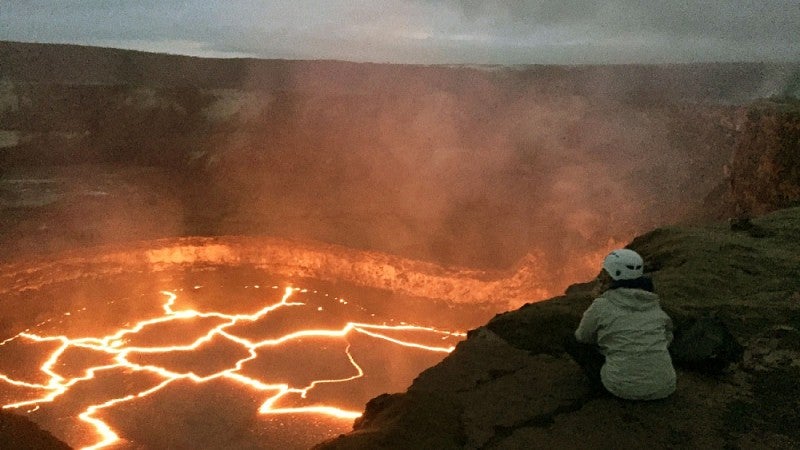"We're Barely Listening to the U.S.'s Most Dangerous Volcanoes," read the headline on a recent story in the New York Times, pointing to the dismal state of volcano monitoring in the Pacific Northwest.
UO earth scientist Leif Karlstrom believes that same headline could also be interpreted literally - he wants to teach others about volcanoes through an ambitious initiative he calls the Volcano Listening Project that seeks to express and understand volcanic data through sound.
As Karlstrom explains, the human brain has evolved to react to and interpret a world full of sounds. This is a practical survival skill when faced with the sound of a falling tree or an approaching city bus, and sound through music can be a compelling window into human emotion.
"Most people regularly listen to music, but rarely do we think of sound as a means of interpreting scientific data," Karlstrom said. "My goal is to bring volcanoes - safely! - into public spaces, exploring complex scientific data in surprising and hopefully interesting ways."
The project is part of Karlstrom's Career Award from the National Science Foundation, which he received in spring 2019 and includes a five-year plan to further develop his Volcanic Listening Project to generate sounds from data recorded at erupting volcanoes. He will use this so-called "sonified" data to inform scientific interpretations, as well as to make and perform music.
A professor in the Department of Earth Sciences, Karlstrom characterizes his research as "fluid and solid mechanics applied to volcanoes and glaciers." When a volcano erupts, Karlstrom says, scientists record ever-increasing amounts of information, which can include photographic or video imagery, gas emissions, deformation of the ground, subsurface earthquakes and chemical compositions of erupted lavas.
Karlstrom and his collaborators have developed computer programs that translate these volcanic data into sound, at which point Karlstrom puts on his music hat to examine the results. As a lifelong musician, he earned a degree in violin performance from the UO and has been playing professionally for nearly 20 years.
After earning his doctorate in earth and planetary science at the University of California, Berkeley, he helped start a number of groups in the San Francisco Bay Area. These include the band Front Country in 2012, now a full-time group based out of Nashville that tours internationally, and the duo Small Town Therapy.
For Karlstrom, combining scientific research with music doesn't often happen, but with this new project he has found a pairing that he says makes sense.
"Sound provides emotional experiences as well as an intuitive way to grapple with the scientific goals of understanding patterns and peering through noisy data," Karlstrom said, adding that he hopes to use these contrasting, biologically hardwired relationships to teach people about volcano science.
"Millions of people are affected by volcanoes and the hazards associated with them," Karlstrom said. "We are exploring new ways to engage with awe-inspiring parts of the natural word, which operate on scales that are well outside the normal human experience. "
Karlstrom will continue to build out his Volcano Listening Project to include learning materials for those interested in data sonification and visualization. He will also promote musical composition and performance based on volcanic data.







